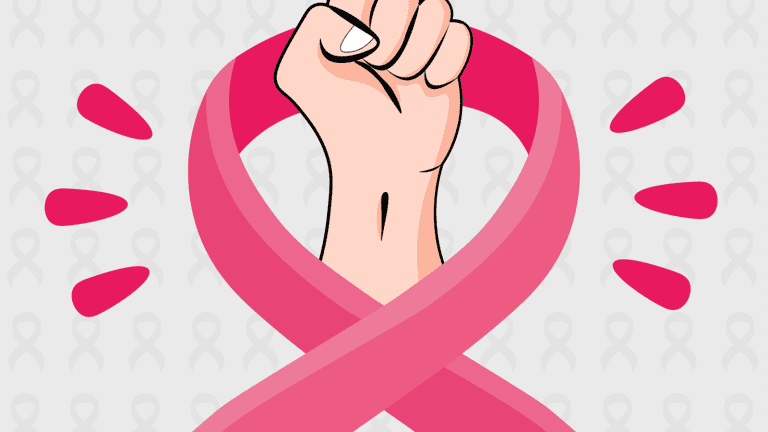Breast cancer is one of the most common cancers affecting women on a global scale. It begins when cells in the breast grow abnormally, often forming a lump or mass. Early detection of breast cancer is essential for successful treatment and understanding the signals the body emits, such as hormonal changes play an important role in early detection.

In an interview with HT Lifestyle, Dr Bhavisha Ghughare, Consultant Surgical Oncology and Breast Oncoplasty Surgeon at HCG Cancer Center in Borivali, Mumbai, explained, “Hormonal fluctuations in women are a natural part of life, occurring during puberty, menstruation, pregnancy and menopause. However, some of these changes can signal early signs of breast cancer, so it’s essential to pay attention to them. Recognizing these signs early can save lives.
She shared: “Breast cancer occurs when uncontrolled cell growth in the breast leads to the formation of a tumor that can spread to other areas of the body. During this process, estrogen and progesterone have proven to be particularly critical. They govern the development and formation of breast tissues; However, when this balance is disrupted or it is produced in too large quantities, it leads to irregular cell growth, putting the person at increased risk of breast cancer.

Dr. Bhavisha Ghughare revealed, “The normal range of estrogen in the female body should not exceed 30 to 400 picograms per milliliter (pg/mL) after the onset of menstruation, and 0 to 30 pg/mL after menopause. However, progesterone levels fluctuate throughout the menstrual cycle and even during pregnancy. Progesterone levels of 2 to 25 nanograms/milliliter (ng/mL) in the luteal stage of the menstrual cycle and 10 to 290 ng/mL at different stages of pregnancy are considered normal. While for testosterone, levels should not exceed 15 to 70 nanograms per deciliter (ng/dL) or 0.5 to 2.4 nanomoles per liter (nmol/L). If levels of these hormones exceed these limits, it is important to consult a doctor.
How can hormonal changes cause breast cancer?
Dr. Bhavisha Ghughare replied, “The female body is continually changing and sex hormones like estrogen, progesterone and testosterone are the main sources of these changes. It brings out unique transformations at different stages of life. Although these changes are normal, they could increase the risk of health problems such as breast cancer. Women also experience hormonal changes at different stages of their lives, such as puberty, pregnancy and menopause.
Although hormonal alterations are necessary for the human body to function properly, when they persist or are excessive, they can lead to an increased risk of breast cancer in the following ways:
- Hormonal changes during pregnancy: For example, during pregnancy, the body needs to secrete very high levels of progesterone and estrogen throughout the gestation period in order to provide the necessary nourishment to the fetus. This is a normal process, but long-term exposure to these hormones in large quantities can cause breast cells to overgrow and often become malignant.
- Early onset of the menstrual cycle and late menopause: Likewise, the female body produces steroid hormones like estrogen during the menstrual cycle, which directly affects breast development and function. Exposure to estrogen increases if a woman gets her period early or if her menopause comes late. This prolonged exposure increases the risk of atypical cells forming in the breast, thereby increasing the risk of developing breast cancer.
- Hormone replacement therapy: Additionally, as women approach menopause and their bodies are unable to produce enough sex hormones, they may need to undergo hormone replacement therapy. This makes them more vulnerable because treatments typically introduce synthetic hormones into the body, further causing this imbalance between progesterone and estrogen. Therefore, women who are undergoing hormonal treatment to treat their menopausal symptoms are advised to consult a doctor to weigh the benefits and harms.
Dr. Bhavisha Ghughare assured, “Hormonal imbalance is an inevitable part of life, but by taking necessary precautions, women can minimize the risks of breast cancer. Women who take care of their health can learn how hormonal changes can affect the body. The best method to achieve natural hormonal balance is to adopt a healthy lifestyle. These are achieved through workouts, good nutrition and maintaining optimal weight. Another important thing is to avoid alcohol and tobacco, as these are one of the risk factors for breast cancer. Additionally, a woman should schedule regular mammograms and perform breast self-exams regularly, as early detection improves the survival rate.

Breast Cancer Prevention Steps
The range of treatment options for breast cancer depends on the stage and time of its discovery. Dr Bhavisha Ghughare suggested: “These options include radiotherapy, surgery and hormone therapy. Regular screening is necessary for breast cancer prevention because it provides more treatment options at diagnosis and better outcomes. Although the female body is always subject to hormonal fluctuations, most risks can be avoided if the woman is informed and uses simple prevention techniques. Understanding the impact of hormones on breast cancer risk allows women to take control of their health choices.
She concluded: “Advances in medical research have helped us shed light on the complex interplay between female sex hormones and the development of breast cancer. It also ushered in a new era of advanced treatment options to cure breast cancer through targeted hormonal therapies and personalized medication plans. By advancing our understanding of the role hormones play in the development of breast cancer, we have been able to optimize therapeutic strategies to improve treatment outcomes and increase the life expectancy of women whose lives are seriously impacted by cancer of the breast.
Disclaimer: This article is provided for informational purposes only and is not a substitute for professional medical advice. Always seek the advice of your doctor with any questions you may have regarding a health problem.


